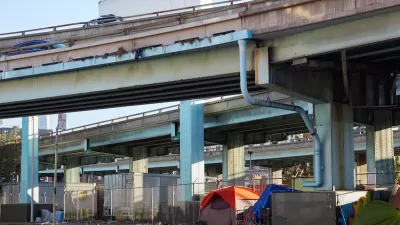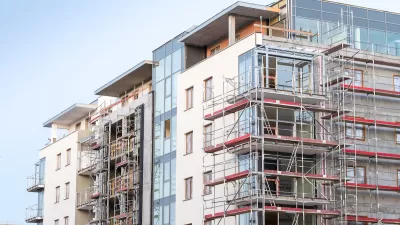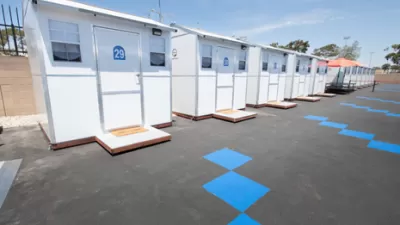Periodically in the affordable housing world, a few of us acknowledge that the vast majority of low-income people live in unsubsidized rentals in one- to four-unit buildings, and we wonder how to preserve and improve those units. Here is a way.
How does one go about working with landlords, often who own only a few units, to keep their units up to code and affordable?
The conversations I've heard on how to do this have mostly focused on the financing and capital investments side, but a panel I attended about rapid rehousing last week at the National Alliance to End Homelessness conference made me wonder about support on the operations side as well.
Rapid rehousing is part of the growing housing-first approach to homelessness, which stipulates that stable housing is the first step toward dealing with homelessness, not the last. A rapid rehousing program helps with housing location, provides financial assistance for a short period of time (often four to six months), and case management. They tend to be run by nonprofits, using a combination of public and private funding.
Why would a landlord want to work with such a program, especially since the rents are generally limited to the fair market rent?
The presenters (Zachary Brown, WV Coalition to End Homelessness; Ben Catell Noll, Friendship Place; Beth Fetzer-Rice, Salvation Army in Central Ohio; and Michael Shore, HOM Inc) had a number of potential answers. Along with giving the feeling of doing something good and being part of something larger (which they absolutely worked), they said . . .
FULL STORY: Could an Anti-Homelessness Program Stabilize Affordable Housing?

Alabama: Trump Terminates Settlements for Black Communities Harmed By Raw Sewage
Trump deemed the landmark civil rights agreement “illegal DEI and environmental justice policy.”

Planetizen Federal Action Tracker
A weekly monitor of how Trump’s orders and actions are impacting planners and planning in America.

The 120 Year Old Tiny Home Villages That Sheltered San Francisco’s Earthquake Refugees
More than a century ago, San Francisco mobilized to house thousands of residents displaced by the 1906 earthquake. Could their strategy offer a model for the present?

Opinion: California’s SB 79 Would Improve Housing Affordability and Transit Access
A proposed bill would legalize transit-oriented development statewide.

Record Temperatures Prompt Push for Environmental Justice Bills
Nevada legislators are proposing laws that would mandate heat mitigation measures to protect residents from the impacts of extreme heat.

Downtown Pittsburgh Set to Gain 1,300 New Housing Units
Pittsburgh’s office buildings, many of which date back to the early 20th century, are prime candidates for conversion to housing.
Urban Design for Planners 1: Software Tools
This six-course series explores essential urban design concepts using open source software and equips planners with the tools they need to participate fully in the urban design process.
Planning for Universal Design
Learn the tools for implementing Universal Design in planning regulations.
Clanton & Associates, Inc.
Jessamine County Fiscal Court
Institute for Housing and Urban Development Studies (IHS)
City of Grandview
Harvard GSD Executive Education
Toledo-Lucas County Plan Commissions
Salt Lake City
NYU Wagner Graduate School of Public Service





























